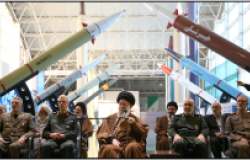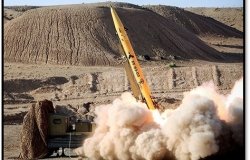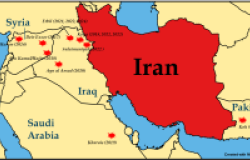Book Discussion—<i>To Lead the World: American Strategy After the Bush Doctrine</i>
Melvyn Leffler, Edward R. Stettinius Professor of History, University of Virginia; Jeffrey Legro, Compton Professor of World Politics, University of Virginia; Stephen Van Evera, Ford International Professor of Political Science, Massachusetts Institute of Technology; Robert Kagan, Senior Associate, Carnegie Endowment for International Peace
Overview
Stephen Van Evera observed that the contemporary international system is reminiscent of that in 1815 under the Congress of Vienna when the great powers agreed that the primary threats in the wake of the French revolution emanated from below. He argued that the prospect of great power conflict remains low since the nuclear revolution has made conquest among great powers essentially impossible. The United States cannot stifle China's rise or Russia's reemergence and should therefore pursue a policy of détente with both of these great powers.
Rather than the specter of resumed great power competition and conflict, the greatest threat to U.S. security, according to Van Evera, is the nexus of terrorism and proliferation – specifically, the intent of millennial terrorist groups, notably Al Qaeda, to acquire weapons of mass destruction, especially nuclear weapons, in order to carry-out mass-casualty attacks. To counter this threat, Van Evera proposed a multi-faceted strategy (including the securing of nuclear materials, addressing inflammatory conflicts like Israel/Palestine and Kashmir, and intelligence sharing), which depends upon effective international cooperation. Van Evera pointed to major domestic impediments, such as neo-conservative resistance to working through international institutions and the political clout of foreign lobbies, which may frustrate the ability of a new president to pursue the type of concert strategy that he proposes.
In contrast to Van Evera's emphasis on non-state threats, Robert Kagan envisions a world of renewed great power competition – in short, the return of traditional realism. He argued that after 9/11, policymakers acted on the flawed assumption that Russia and China shared the U.S. interest in countering terrorist threats. Instead, he quipped, everyone is behaving as though they'd read Hans Morgenthau. These balance-of-power tensions were evident in the recent crisis in Georgia. Whereas the United States viewed the support of the Rose and Orange revolutions in Georgia and Ukraine, respectively, as part of the expansion of the community of democracies, Russia considered them as geopolitical moves by the West to contain it. But Kagan concluded that the reemergence of traditional great power competition does not augur the inevitability of war, but rather, that the scope of potential cooperation with Russia and China is narrow because interests diverge.
Editor Jeffrey Legro concluded with a summary of key points of convergence and divergence among the authors. All agreed on the following: U.S. leadership remains necessary, but "Americans want hegemony on the cheap;" the continuation of U.S. military preponderance is essential for maintaining American security and influence; and the expansion of the community of democracies with market economies is an important objective. Differences among the authors emerged over the definition and prioritizing of threats, the role of hard power in furthering U.S. foreign policy interests, and the role of international institutions (i.e., whether the United States should work within existing institutions, such as the UN Security Council, or develop an alternative alliance or league of democracies).
Robert Litwak, International Security Studies
Thank you for your interest in this event. Please send any feedback or questions to our Events staff.










